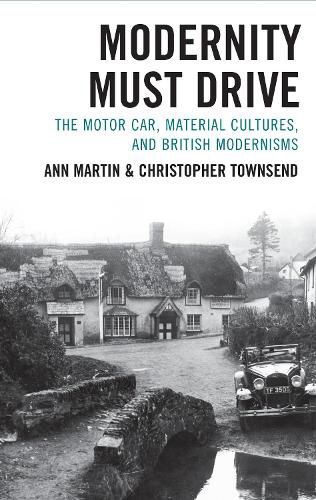Readings Newsletter
Become a Readings Member to make your shopping experience even easier.
Sign in or sign up for free!
You’re not far away from qualifying for FREE standard shipping within Australia
You’ve qualified for FREE standard shipping within Australia
The cart is loading…






A collection of essays delving into the textual representations and history of British and Irish car culture.
Modernity Must Drive focuses on British and Irish literature from the first half of the twentieth century, exploring modernist accounts of the motor car according to its layered cultural significance. Engaging with prose by Bowen, Joyce, Rhys, Woolf, Waugh, and others, the volume complicates a reading of the automobile as merely a metaphor for "the new." Instead, chapters historicize the complexities of motoring as it is situated in the overlaps between tradition and innovation. The collection comprises readings of the motor car as a lived object, where writers trace experiences of modernity through luxury marques, war-time ambulances, motoring guides, race cars, and roads. In a series of interdisciplinary essays, based in literary and cultural studies, the authors employ new materialist and decolonizing approaches, providing new insights into the social forces that affected individual uses of technology and the modernists who responded to the driving force of machines.
$9.00 standard shipping within Australia
FREE standard shipping within Australia for orders over $100.00
Express & International shipping calculated at checkout
A collection of essays delving into the textual representations and history of British and Irish car culture.
Modernity Must Drive focuses on British and Irish literature from the first half of the twentieth century, exploring modernist accounts of the motor car according to its layered cultural significance. Engaging with prose by Bowen, Joyce, Rhys, Woolf, Waugh, and others, the volume complicates a reading of the automobile as merely a metaphor for "the new." Instead, chapters historicize the complexities of motoring as it is situated in the overlaps between tradition and innovation. The collection comprises readings of the motor car as a lived object, where writers trace experiences of modernity through luxury marques, war-time ambulances, motoring guides, race cars, and roads. In a series of interdisciplinary essays, based in literary and cultural studies, the authors employ new materialist and decolonizing approaches, providing new insights into the social forces that affected individual uses of technology and the modernists who responded to the driving force of machines.